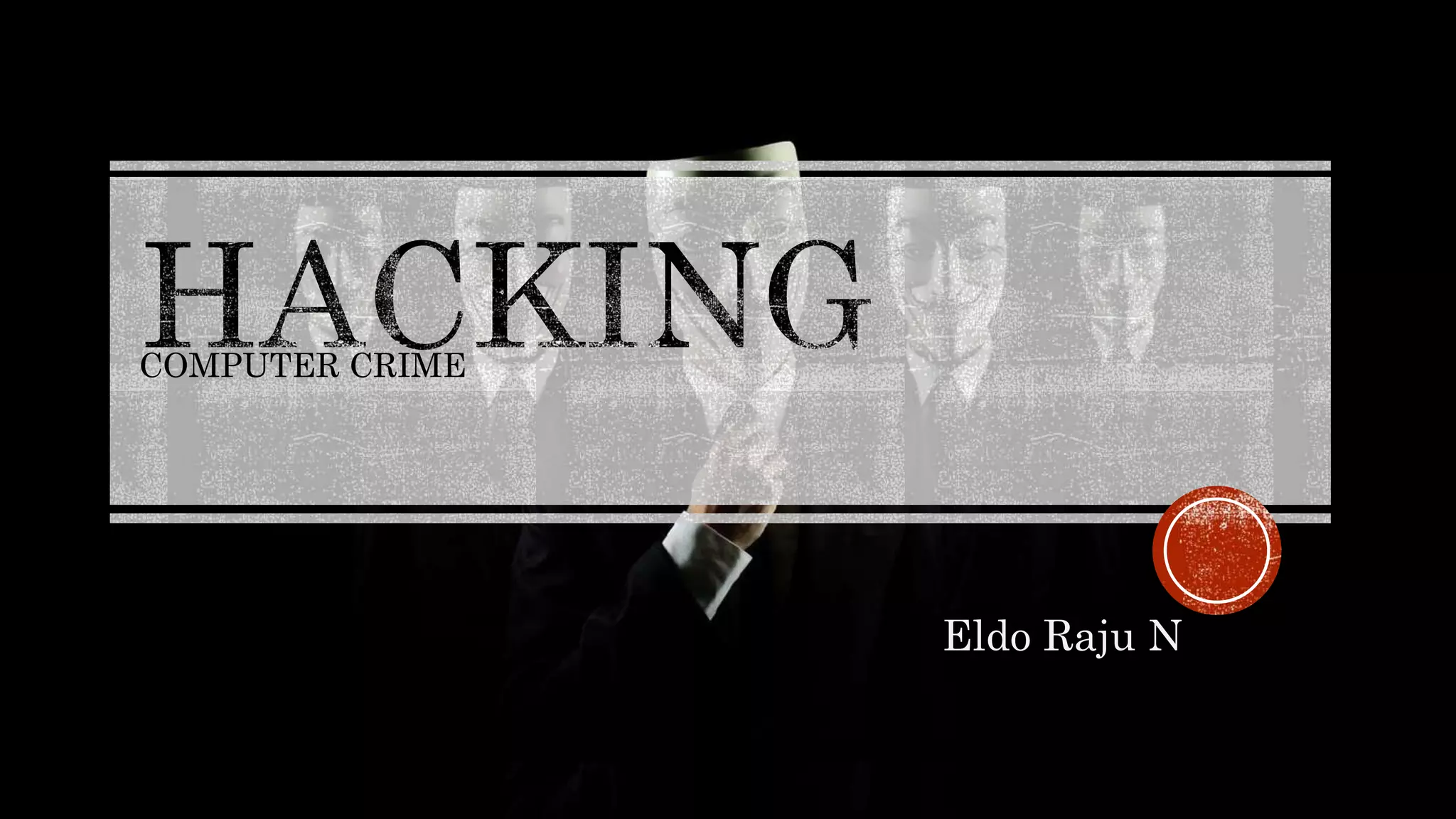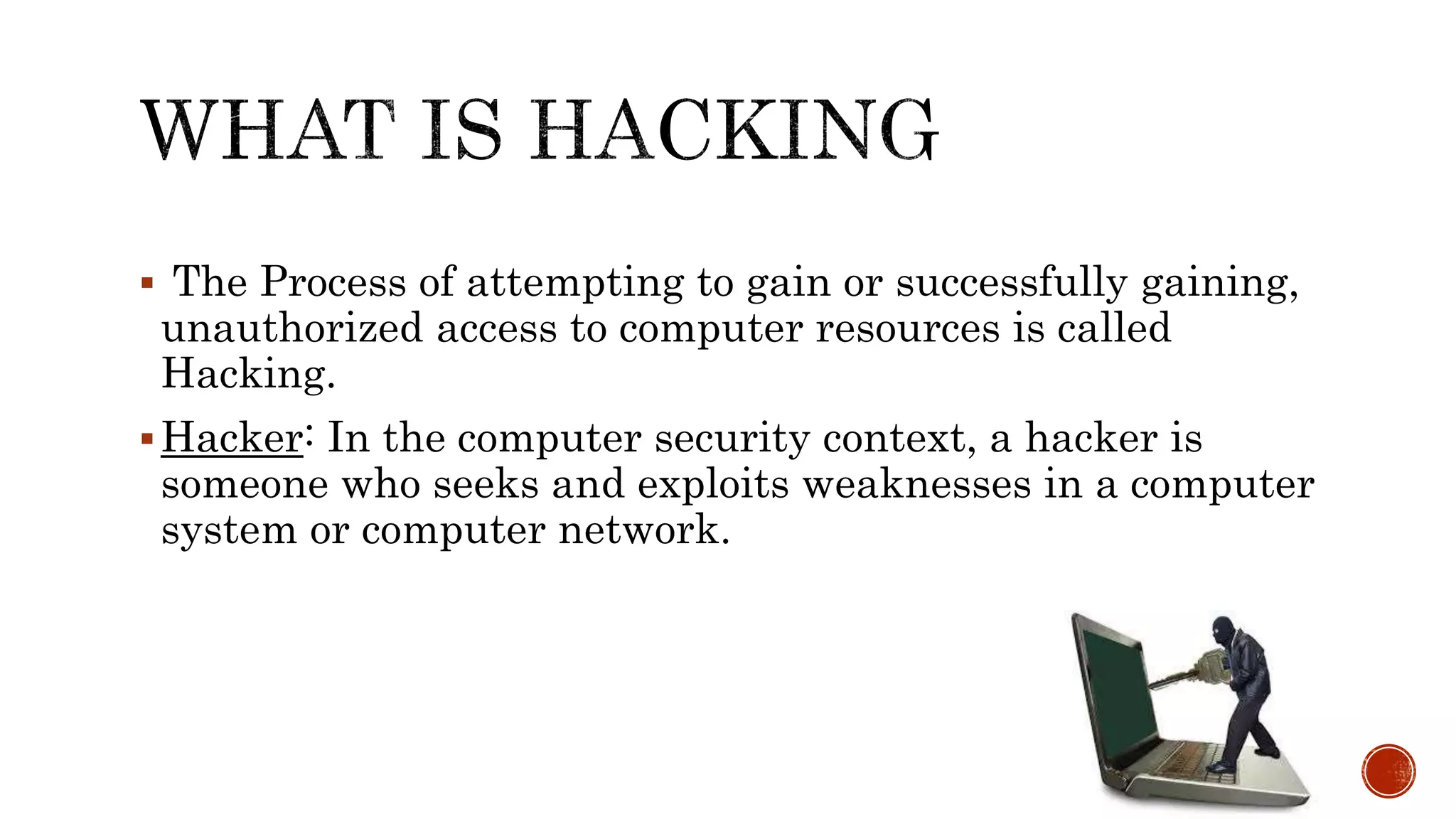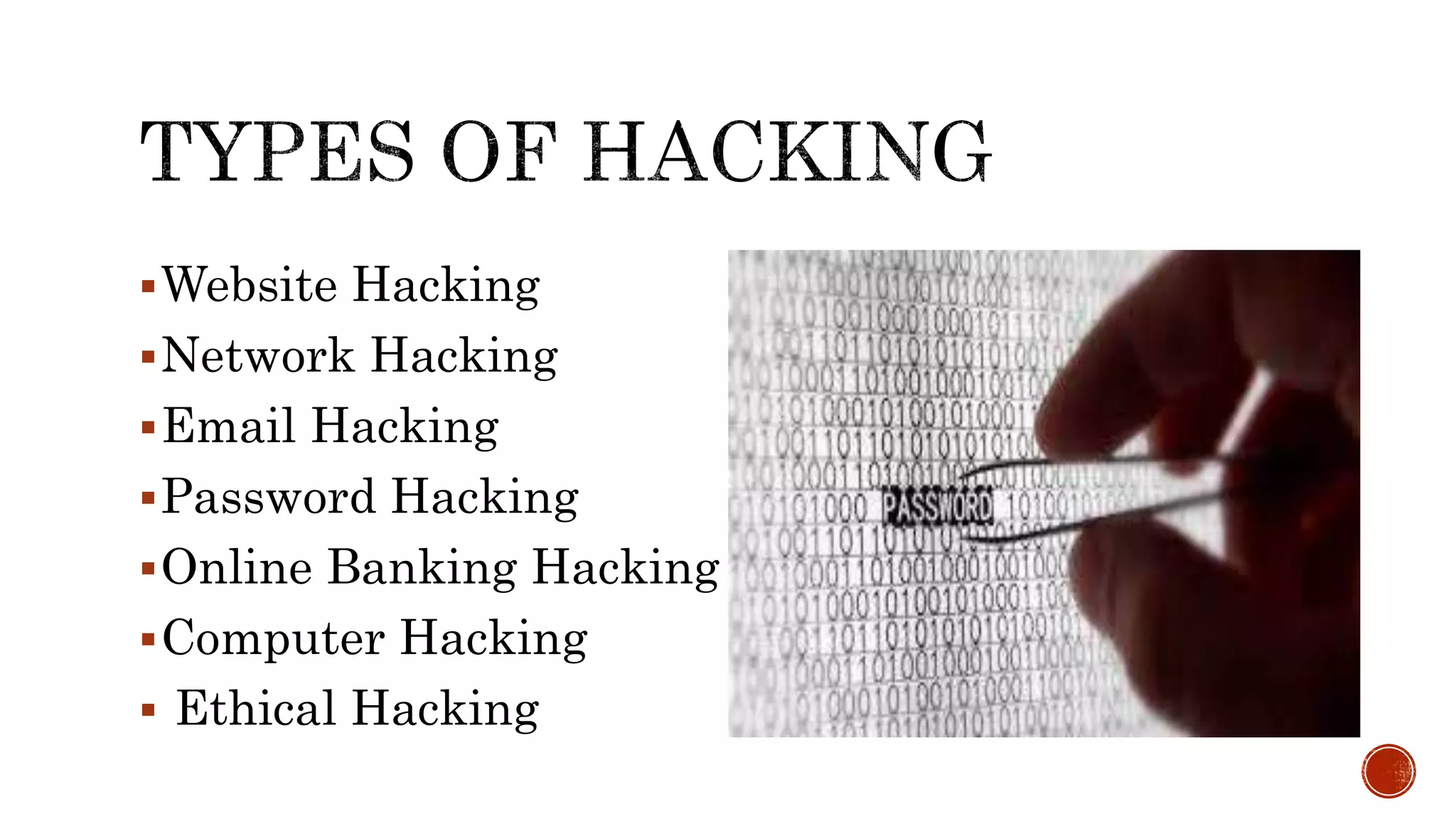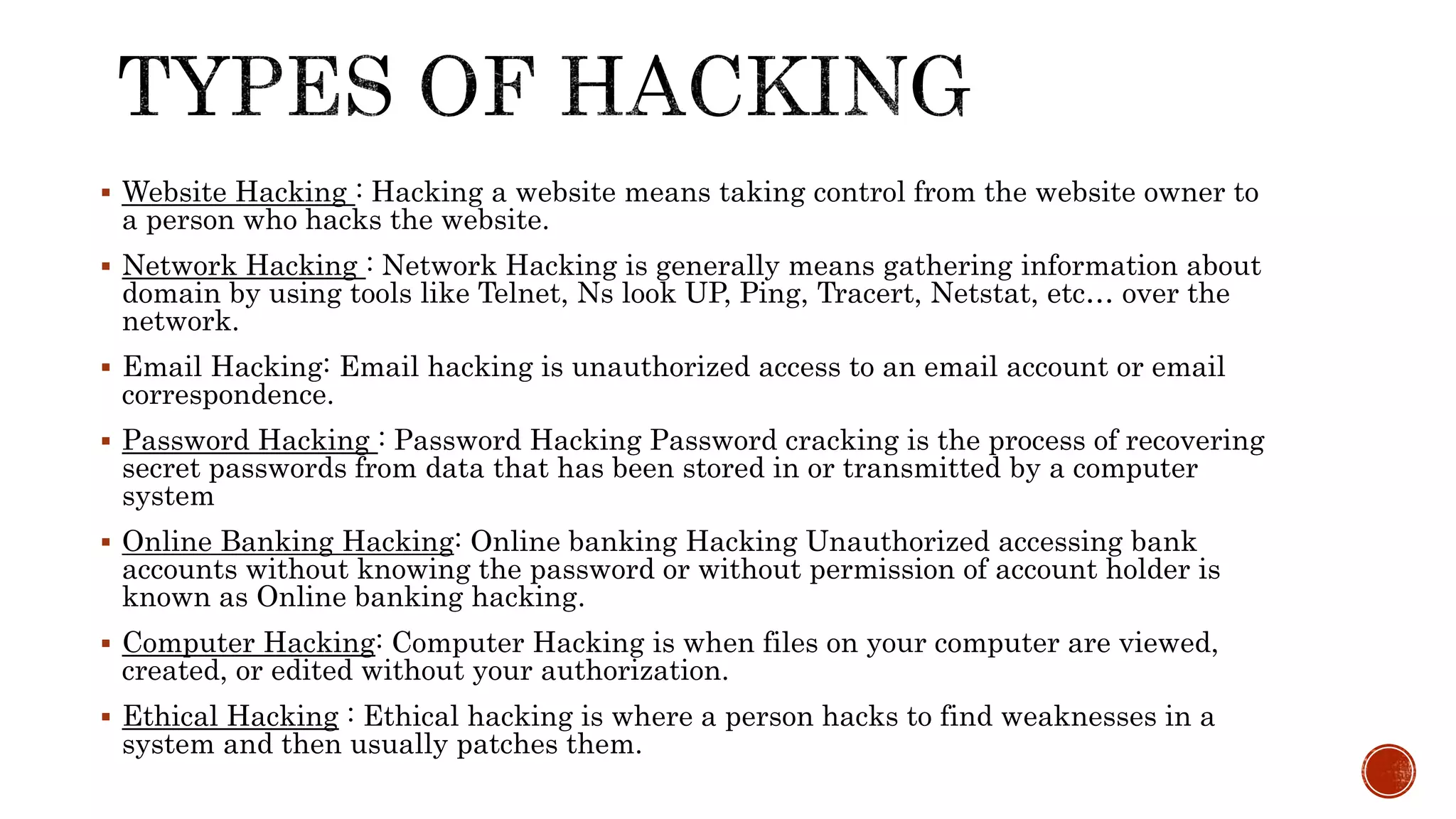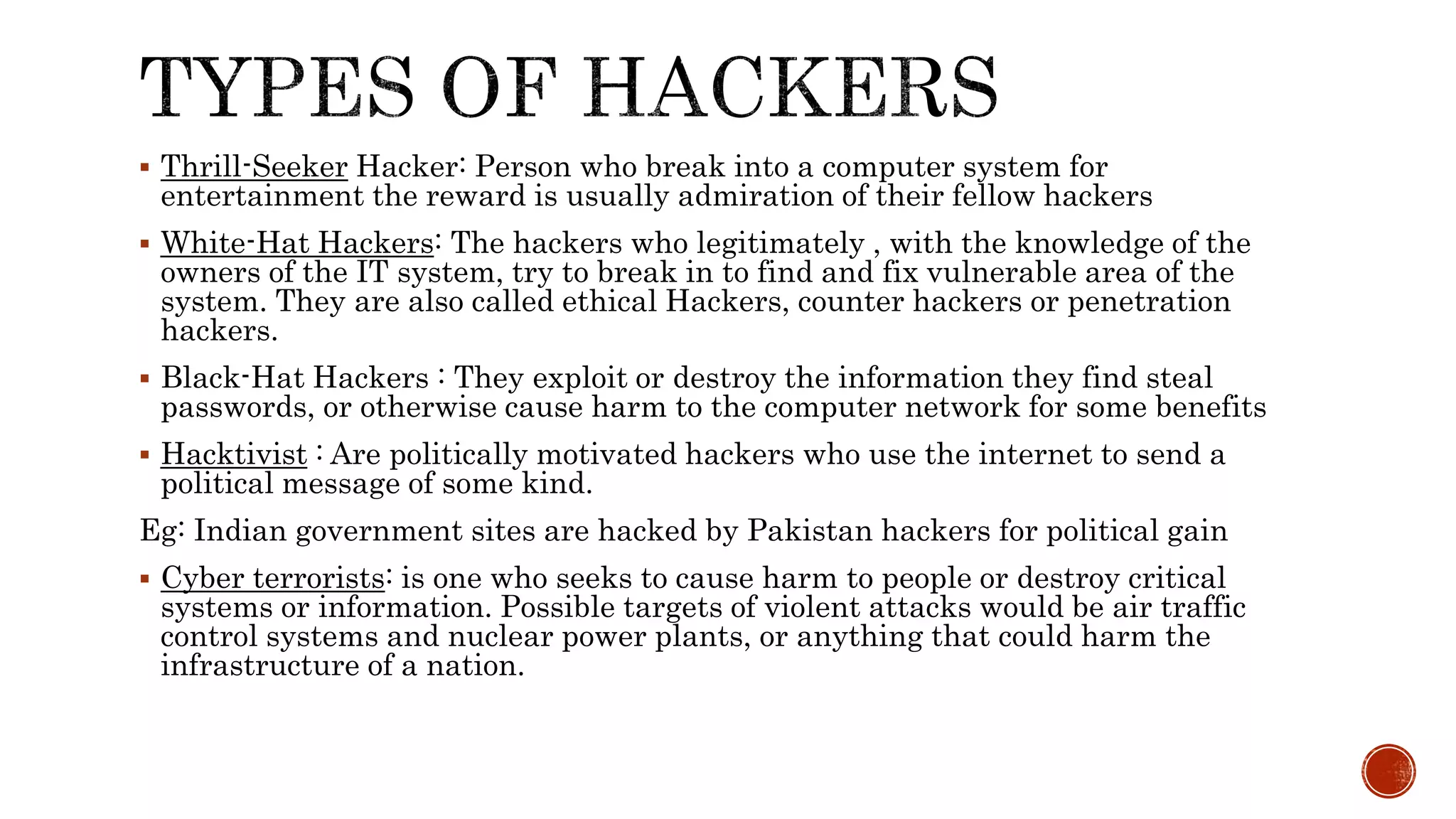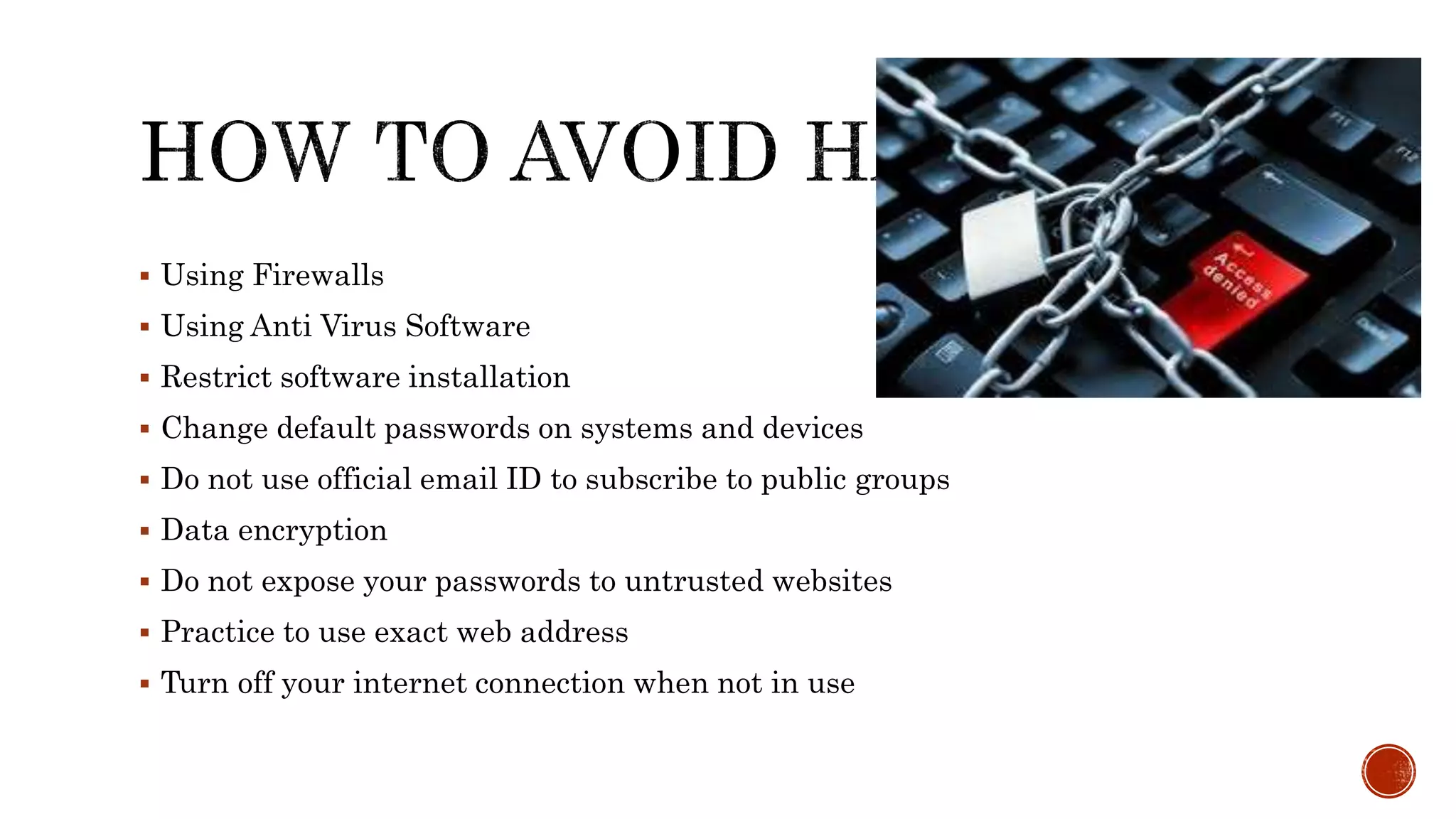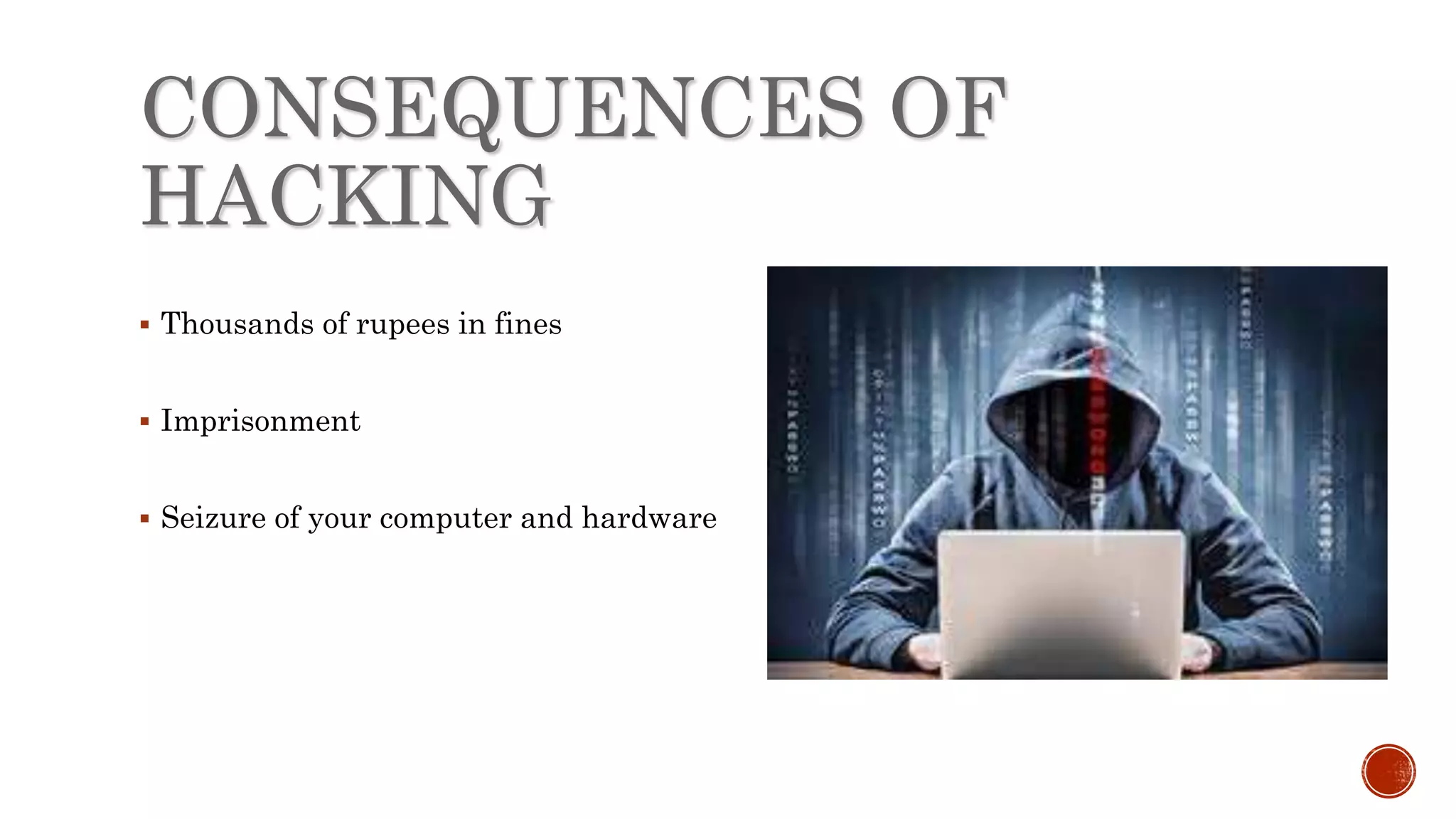The document discusses various forms of hacking, including website, network, email, password, and online banking hacking, as well as the differences between ethical hackers, black-hat hackers, thrill-seeker hackers, hacktivists, and cyber terrorists. It also outlines the potential consequences of hacking, such as fines, imprisonment, and the seizure of hardware. Additionally, it provides preventive measures to protect against hacking, including using firewalls, antivirus software, and practicing secure online behavior.
